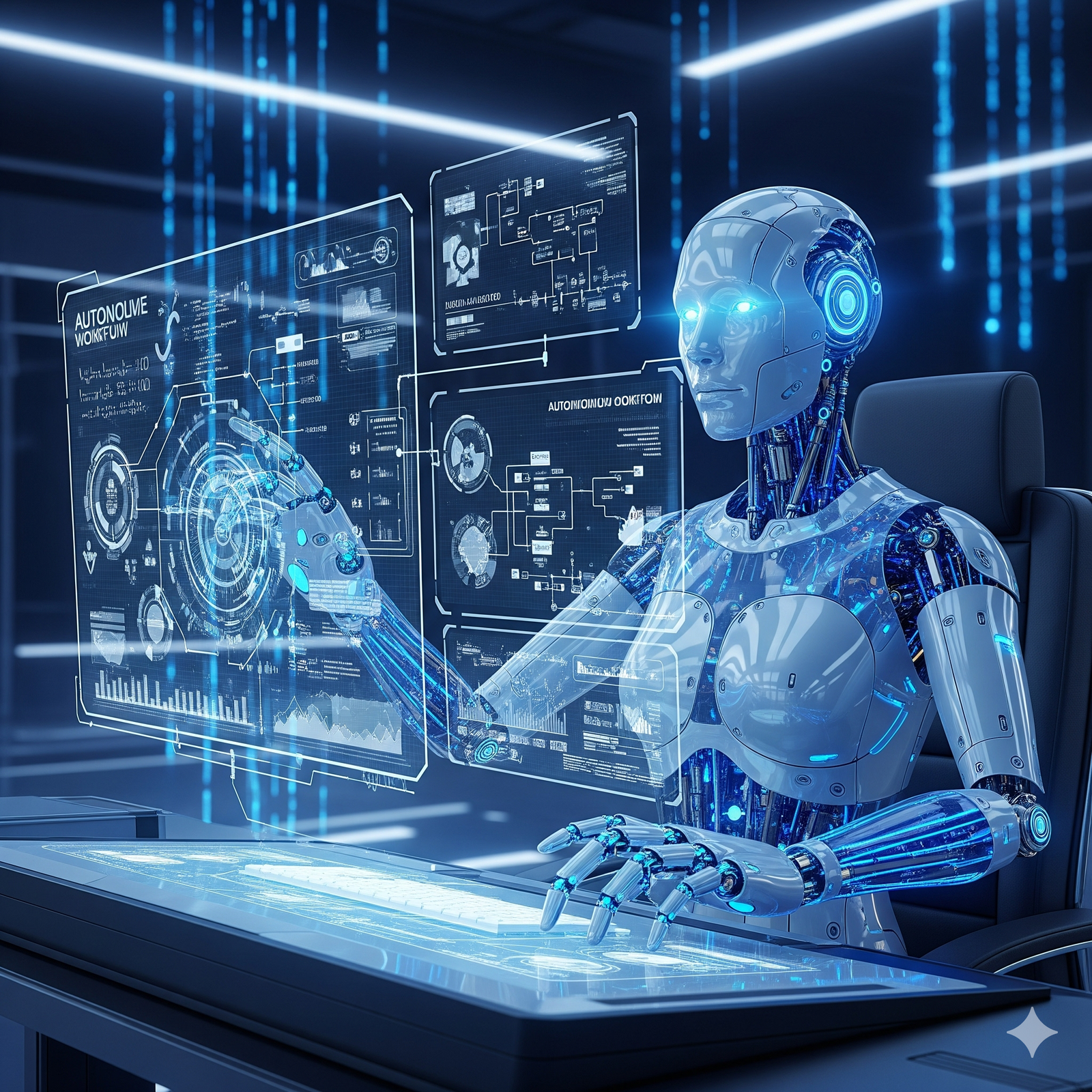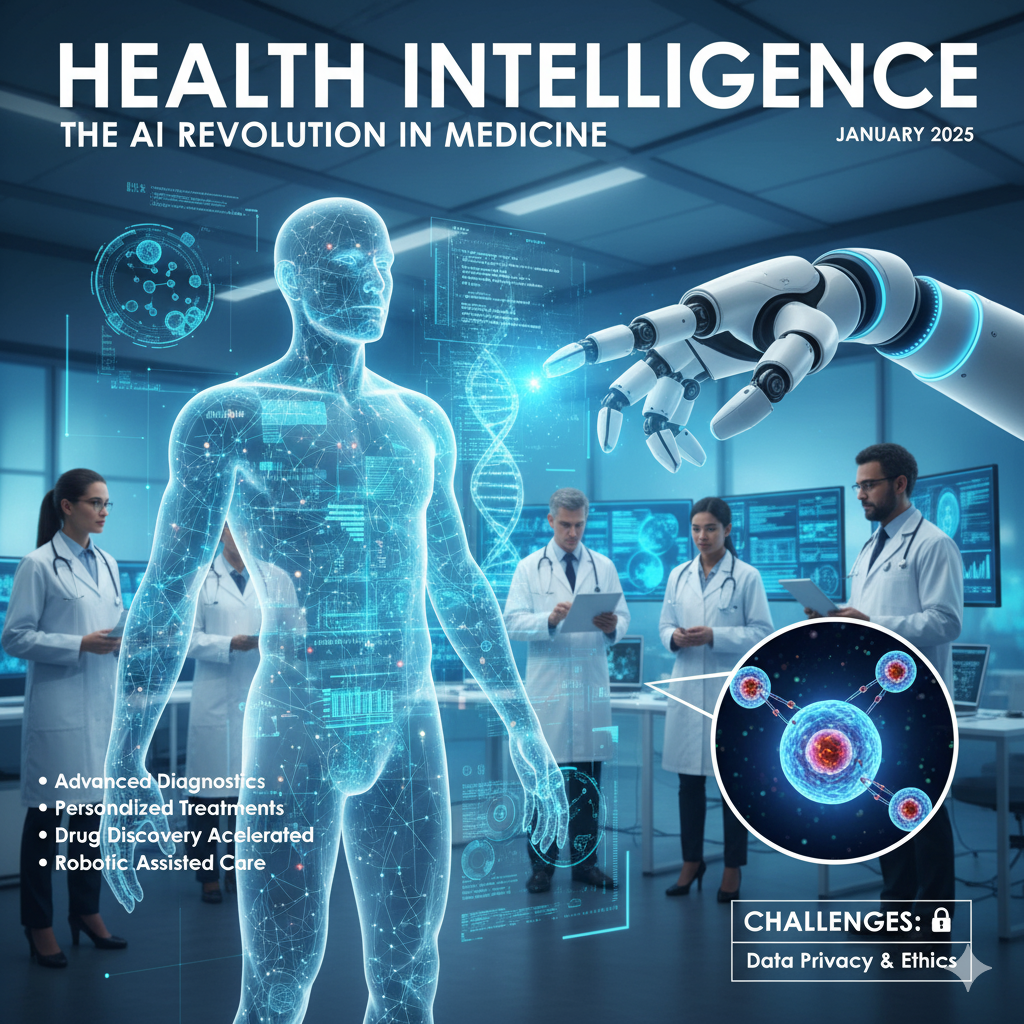The Rise of AI Agents and the Dawn of Autonomous Workflows
The world of technology is undergoing a seismic shift, one that is moving beyond simple automation and into the realm of truly autonomous systems. While generative AI has captured the public’s imagination with its ability to create text and images, a more fundamental and disruptive trend is quietly gaining momentum: the rise of AI agents. These are not just advanced chatbots; they are sophisticated software programs capable of performing complex, multi-step tasks with minimal human intervention.
For years, artificial intelligence has been a tool for human productivity, but the relationship has been largely one-sided. We provided the inputs and the AI provided the output. Now, this dynamic is changing. AI agents, powered by advanced machine learning models, can understand a user’s goal and then break it down into a series of actionable steps. They can navigate the web, interact with other software, and even make decisions to achieve the desired outcome. The promise is the creation of “autonomous workflows” where entire processes, from data analysis to content creation, can be managed end-to-end by an AI.
What are AI Agents? A Deeper Dive
Think of an AI agent as a digital assistant with a high degree of autonomy. While a traditional AI might, for example, answer a single question, an AI agent can execute a full project. Let’s imagine a marketing professional who needs to research a new product launch. Instead of manually searching for market data, competitor analysis, and consumer trends, they can simply instruct an AI agent: “Research the market for sustainable fashion in Europe and generate a report with key trends and a list of top five competitors.”
The agent would then:
- Formulate a plan: It would break down the request into a series of sub-tasks, such as “search for ‘European sustainable fashion market report 2025’,” “identify key trends from reputable sources,” and “find a list of major brands in the space.”
- Execute the tasks: It would perform a series of web searches, analyze the results, and extract relevant information. It could even use its tools to interact with databases or other software to gather data.
- Synthesize and create: The agent would then compile the gathered information into a structured report, complete with analysis and a summary.
- Present the result: Finally, it would deliver the finished report to the user, who can then refine it or use it for strategic planning.
This is a stark contrast to the current state of AI, where a user would have to manually perform each of these steps, using different tools for each task.
The Impact Across Industries
The implications of this shift are profound and will be felt across every industry.
- In Business: AI agents can automate a wide range of tasks, from supply chain optimization and financial forecasting to customer service and human resources. Imagine an agent that automatically flags and resolves logistical bottlenecks in real-time or one that manages the entire recruitment process, from sourcing candidates to scheduling interviews.
- In Creative Fields: While AI agents can write articles or generate art, their true power lies in streamlining the creative process. An agent could handle the tedious research for a documentary, allowing the filmmaker to focus on storytelling. It could even manage the distribution of a piece of digital art, automatically listing it on marketplaces and promoting it on social media.
- In Research and Development: AI agents can accelerate the pace of scientific discovery. A researcher could task an agent with sifting through millions of scientific papers to find a specific data point or to identify potential correlations in vast datasets, a task that would be impossible for a human to do manually.
Challenges and the Path Forward
Of course, the rise of AI agents is not without its challenges. The need for robust, ethical frameworks is paramount. How do we ensure these agents are making decisions that are fair and unbiased? What happens when an autonomous workflow encounters an unexpected ethical dilemma? The development of AI agents will require a parallel focus on governance, transparency, and accountability.
The legal and ethical questions surrounding AI-generated content and decision-making are just beginning to be explored. Furthermore, the societal impact on the workforce cannot be ignored. The shift towards autonomous workflows will require a new kind of human-AI collaboration, where our roles evolve from task execution to strategic oversight and problem-solving.
The AI revolution is no longer just about generating content; it’s about generating a new way of working. The age of AI agents is dawning, promising a future where our most complex and tedious tasks are handled with unprecedented autonomy, freeing us to focus on innovation, creativity, and the uniquely human challenges that lie ahead.





